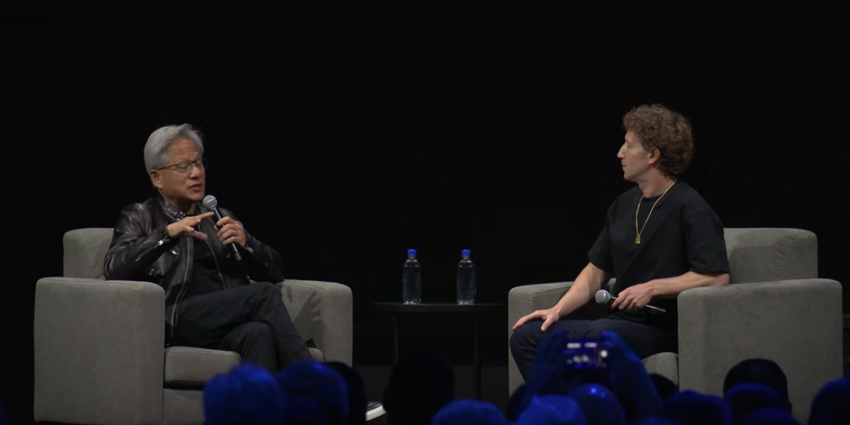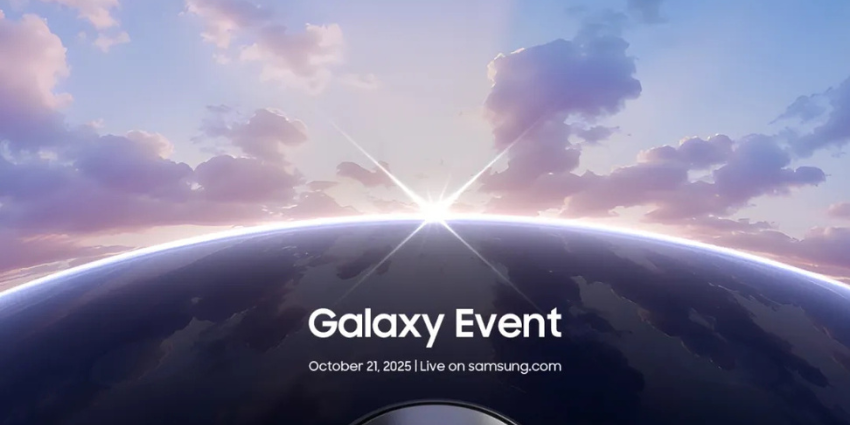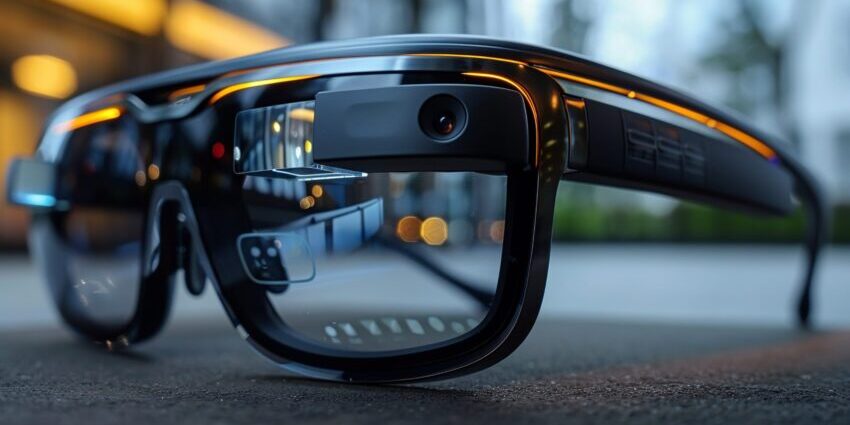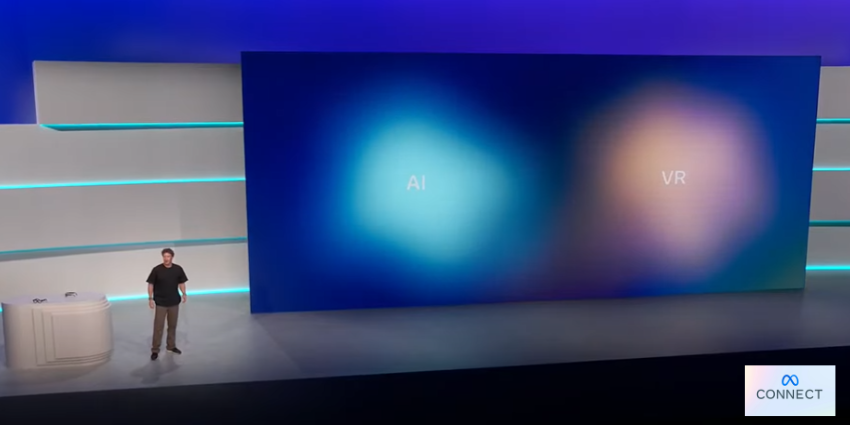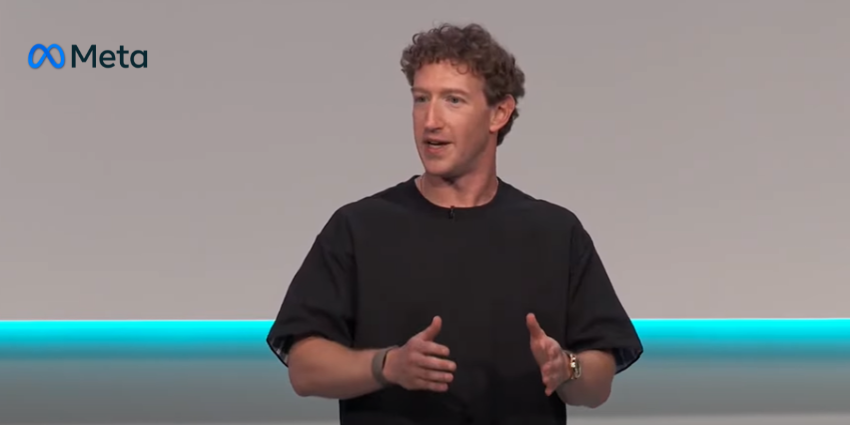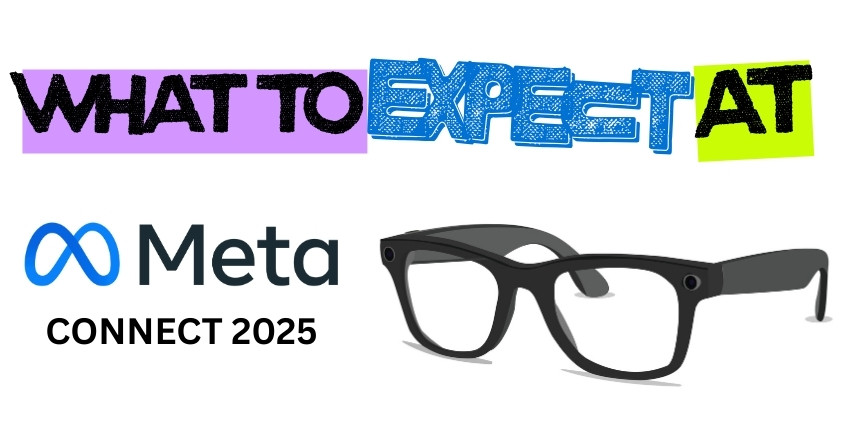Meta Connect is coming, and with this being a paradigm-shifting year for XR, Meta needs to keep itself focused on a roadmap that’ll continue the company’s XR lead amid growing competition. While the future is not set in stone, Meta seems keen to become a provider of XR headsets, smart glasses, and open XR operating systems.
Recently, SIGGRAPGH 2024 kicked off by platforming the best in similar emerging technology innovations, such as smart glasses and AI, via its expo floor and stages.
During the event, NVIDIA CEO Jensen Huang and Meta CEO Mark Zuckerberg spoke during a keynote on the future of Meta XR hardware ambitions and where the technology is heading with AI integrations.
The Cross-Device and Cross-Sector Application of GenAI
During the keynote, Jensen noted:
This technology, generative AI, I don’t remember another technology that, at such a fast rate, influenced consumers, enterprise industries and science, and to be able to cut across all these different fields of science, from climate tech to biotech to physical sciences. In every single field that we’ve encountered, generative AI is right in the middle of that fundamental transition.
Zuckerberg also explained his passion for genAI and its effect on Meta’s growing technology goals. The CEO noted that alongside the once widely published Metaverse drive, Meta also worked to innovate in AI, adding, “We started FAIR, the AI Research Center before we started reality labs, and we’ve been at this for a while.”
Zuckerberg remarked:
Gen AI is an interesting revolution, and I think that it’s going to end up making all of the different products that we do different in interesting ways.
Zuckerberg also noted how Meta’s work in AI and Llama influences the firm’s work in AR and VR. The Meta CEO remarked that this technology stack makes the Horizon OS framework more open.
He added:
We are basically making the Horizon OS, which we’re building for mixed reality, an open operating system in the sense of Android or Windows. We’re making it so we’re going to be able to work with lots of different hardware companies to make all different kinds of devices. We basically just want to return the ecosystem to that level where it’s going to be the open one. I’m pretty optimistic that [during] the next generation, the open ones are going to win.
Meta’s Progress towards Building a XR Legacy
Zuckerberg’s comments on using AI, LLMs, and XR to build an open ecosystem come at a time when Meta needs to create a selling point around his XR investments. As hardware giants like Samsung set sights on the growing XR space, coming with such interested firms are pre-existing device ecosystems that could boost the potential new devices ahead of Meta.
Similar to how the Vision Pro works between different Apple hardware like iPhones or Apple TVs, a pre-existing hardware ecosystem will help boost usability in consumer and enterprise environments.
However, Meta does not have a deep hardware ecosystem outside of the Quest line-up and Ray Ban smart glasses. So, the move towards providing AI and open frameworks makes sense as an alternative to other ecosystem plays.
For Meta, the journey has been extended. While new firms are entering the space, Zuckerberg seems sure that Meta’s work innovating XR hardware will push them forward, leveraging years of dedicated experience to bring the best in upcoming XR products.
Zuckerberg added:
I think it was back in 2018 that we showed some of the early hand-tracking work on our VR and mixed-reality headsets. We’ve talked a bunch about the progress that we’re making on codec avatars, the photo-realistic avatars that we want to build to drive from consumer headsets, which we’re getting closer and closer to. Pretty excited about that and also a lot of the display systems work that we’ve done, so some of the future prototypes and research for getting the mixed reality headsets to be able to be really thin with pretty advanced optical stacks and display integrated system[s]
Smartglasses or VR Headsets: What’s Next for Meta?
Like many others, Zuckerberg does not believe that XR devices will thoroughly eliminate the need for other traditional devices, such as smartphones or laptops. Regarding future-leading XR devices, Zuckerberg said, “When we think about the next computing platform, we break it down into mixed reality, the headsets, and the smart glasses.”
Zuckerberg also noted that smart glasses are easier for general audiences to understand than headsets “because pretty much everyone who’s wearing a pair of glasses today will get upgraded to smart glasses. That’s like more than a billion people in the world.”
Zuckerberg added:
VR headsets, I think some people find it interesting for gaming or different uses. Some don’t yet. My view is that they’re going to be both in the world. I think the smart glasses are going to be sort of the mobile phone, an always-on version of the next computing platform, and the mixed reality headsets are going to be more like your workstation or your game console, where when you’re sitting down for a more immersive session, and you want access to more compute.
Smartglasses Development Hurdles
Zuckerberg claims that despite the exciting potential for smart glasses, the development cycle is not totally smooth sailing, and many lessons are being learnt. The CEO noted that Meta’s smartglasses leverage a “very small form factor,” which brings a number of “constraints.” The CEO explained that Meta cannot deliver the same amount of computing on smart glasses as it can on a phone.
However, the breakthrough in smart glasses, which led to the Meta Ray Ban deal, comes at an opportune time: “exactly the time when all of these breakthroughs and generative AI happened,” he remarked.
Zuckerberg added:
For smart glasses we’ve been going at the problem from two different directions. On the one hand, we’ve been building what we think is the technology that you need for ideal holographic AR glasses, it’s really quite impressive. We’re doing all the custom silicon work, all the custom display stack work, all the stuff that you need to do to make that work. And their glasses, right? It’s not a headset. It’s not like a VR headset. They look like glasses, but they’re still quite a bit far off from the glasses that you’re wearing now.
Using the recently updated Meta Ray-Ban product, Zuckerberg noted that the firm “couldn’t quite fit all the tech” needed to achieve full AR usability; “we’re getting close, and over the next few years, we’ll basically get closer.”
Zuckerberg also added:
The other angle that we’ve come at this is let’s start with good looking glasses by partnering with the best glasses maker in the world, Essilor Luxottica. – So we’ve been working with them on the rebounds. We’re in the second generation and the goal there has been, OK, let’s constrain the form factor to just something that looks good great and within that let’s put in as much technology as we can.
Meta Connect is coming in late September. To compete in the growing XR market, the firm will have to impress to stay ahead. The firm’s repeated discussion of smart glasses may indicate where it is heading in 2025.
